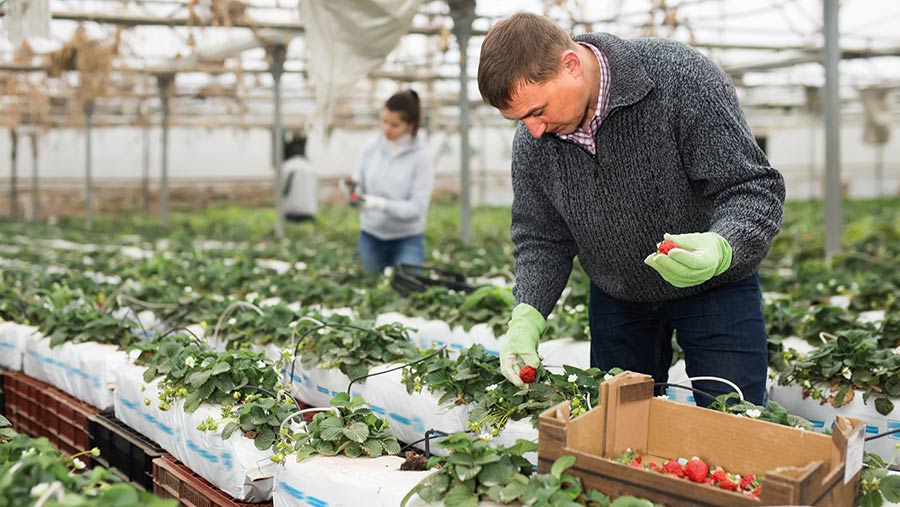Govt insists £10.10/hour for seasonal workers here to stay
 © AdobeStock/JackF
© AdobeStock/JackF The Home Office has given a firm rebuttal to claims it has acted illegally by introducing a higher minimum wage for seasonal workers than for British nationals working in the UK horticulture sector on the national living wage.
The rate of £10.10/hour for foreign workers recruited within the Seasonal Worker visa scheme was confirmed by the Home Office in March and compares with the national living wage of £9.50/hour.
See also: Horticulture faces labour, costs and wage inflation crisis
It prompted an outcry from fruit and vegetable growers, who said it amounted to a 13.5% increase on last year’s wages and is being introduced on top of a 1.25% rise in national insurance contributions.
Nick Marston, chairman of industry body British Summer Fruits, said growers were “hugely exposed” to the Home Office’s decision.
“Our members actually employ about 30,000 of the 70,000 seasonal workers within horticulture, and if you look at the make-up of our costs of production, around 50% is direct seasonal labour. It cannot be supported out of any efficiency gain or on-farm net profitability.”
The organisation therefore instructed solicitors Howes Percival to send a pre-action protocol letter in late March to the Home Office, as a precursor to a possible judicial review.
Firm footing
But the reply from the Home Office, seen by Farmers Weekly, makes it clear the government department believes its decision to set a higher wage rate for overseas workers is on a firm legal footing.
“By introducing this policy, we are implementing the recommendation of the Migration Advisory Committee,” it says. “This states ‘if a seasonal agriculture worker scheme was introduced, we recommend that employers pay a higher minimum wage in return for the privileged access to labour this scheme would give the sector, in order to encourage increases in productivity’.”
The Home Office adds that there was no legal requirement for it to undertake a public consultation when setting wage rates for the immigration system, and says the £10.10/hour rate is consistent with other sectors, such as care workers.
It also suggests the industry had plenty of time to prepare, given that the government announced changes to the Seasonal Worker scheme on 24 December last year (even though the actual rates were not revealed until February – and even then a figure of £12.31/hour was erroneously released).
The Home Office insists the soft fruit sector is not being discriminated against, adding: “It is not the purpose of the UK immigration system to provide UK growers with a source of cheap labour, to compete with lower rates of pay in other countries.”
‘Exploitation’
The letter also points to a 2021 government report, which flagged agriculture as having a “high risk for labour market exploitation”, such as debt bondage.
The Home Office concludes by reminding the complainant that, if it wishes to apply for a judicial review, it needs to be made “within three months of the date of the action against which the claim is to be made”.
British Summer Fruits has described the letter as “unsatisfactory” and plans to fight on. “Unfortunately there is clearly no will at the Home Office to change their approach on this matter and, with the season already started, the industry is effectively stuck with their decision on rate of pay, however unreasonable it may be,” said Mr Marston.
“However given the huge effect the rate of pay will have on growers cost of production and sustainability, we believe as British Summer Fruits we should continue to challenge the rationale.”
